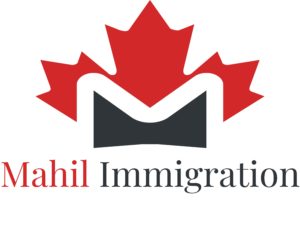10 things to do when you arrive in Canada as an International Student
So, now that you’ve arrived in Canada, what’s next? When you arrive, there are many things you need to take care of, ranging from the boring to the exhilarating, and it’s better to get started as soon as possible. Here’s a rundown of the essential duties you’ll encounter throughout your initial weeks as a Canadian student.
1. SIN:
To work in Canada, you’ll need your Social Insurance Number, which is a nine-digit number. It’s identical to Ireland’s PPS number, the UK’s National Insurance Number, Brazil’s CPF, and Australia’s Tax File Number.
Your SIN will start with a ‘9’ if you’re in Canada on a temporary work permit.
You may get a SIN at any Service Canada location, and assuming the lines are low; you should be done in about 30 minutes. Bring your work or study permit, as well as your passport, with you.
2. BANK ACCOUNT:
It’s crucial to establish up a bank account in Canada so you can manage your bills and debit card payments and avoid possibly costly withdrawals from your home account.
3. PHONE PLAN:
Researching and comparing phone plans is not a pleasurable experience. It’s even worse when you’re jet-lagged, but you’ll need to make it simpler when you have a local data plan and can use Google Maps to navigate. You’ll save money on roaming charges from your home operator if you buy a local phone sooner rather than later. If you’re on a two-year visa and seeking a two-year contract, you’ll want to make sure things are as aligned as possible.

4. ACCOMMODATION
Suppose you don’t have a credit history in Canada or local references (as most immigrants do). In that case, you may find yourself at a disadvantage, as some landlords prefer applicants who can supply these. If this happens, you’ll just have to keep looking until you find a more accommodating landlord.
5. HEALTH CARE
Citizens, permanent residents, and temporary residents of Canada may or may not be eligible for public medical care, which varies by province and covers medical expenses. Each family member will receive a provincial or territory government-issued health card if they are qualified. Newcomers to several provinces and territories must wait a certain amount of time before becoming eligible for public health insurance. You must apply for temporary private health insurance until you are eligible.
6. ENROLL YOUR KIDS IN SCHOOL AND/OR CHILD CARE
Every child in Canada is entitled to free public elementary, middle, and high school education if their parent or guardian agrees.
“School-age” children are required by law to attend school. The definition of “school age” varies by province or territory.
Depending on your situation, you have two options: register your children with the school boards or directly with your local school. The papers required will vary, but in general, they will require proof of your family’s immigration status in Canada, as well as documents such as your child’s birth certificate and vaccination certificate. Keep in mind that grade levelling in Canada depends on the child’s age.
If you want to work full-time or study and require daycare for your younger children, newcomer services groups can assist you in finding appropriate daycare in your area. This is a fee-based service, and only permanent residents and Canadian citizens are eligible for a subsidy.
7. NETWORKING
After all of your errands have been completed, it’s time to meet some new people and begin forming a solid network of good friends and acquaintances who can make you feel completely at home in your new city.
8. SELF-CARE
You’ll have jet lag. You won’t be able to tell where the finest place to get your daily necessities is. You’ll occasionally be troubled by the fact that your entire support network is spread across numerous time zones. And the tedium of apartment hunting will pale in comparison to the months you spent thinking about your new life.
That’s OK. Remember that it’s normal to feel cranky when you’re exhausted, and it’s also normal to miss having your own bed after a few weeks in an Airbnb or Hotel. Don’t be too hard on yourself, and keep in mind that other travellers are in the same boat as you.
9. DISCOVER
Canada is a highly cosmopolitan country with numerous organizations committed to assisting newcomers in settling in. Public libraries are great places to go for community and government resources, as well as free Internet access. Ethnic associations and community centres are excellent sources of information, activities, and friendships.
10. EXPLORE
It’s easy to overlook how thrilling this whole process is between the tension of closing down your life back home and the worry of establishing your new life here.
With reminders of why you opted to travel in the first place, you can balance your jet lag and your studious attempts to make a life in Canada. Climb the CN Tower, the Grouse Grind, and rent a car for the weekend to explore. Do something you’ve always wanted to do.
You’ve made it. Get out and explore the city.


